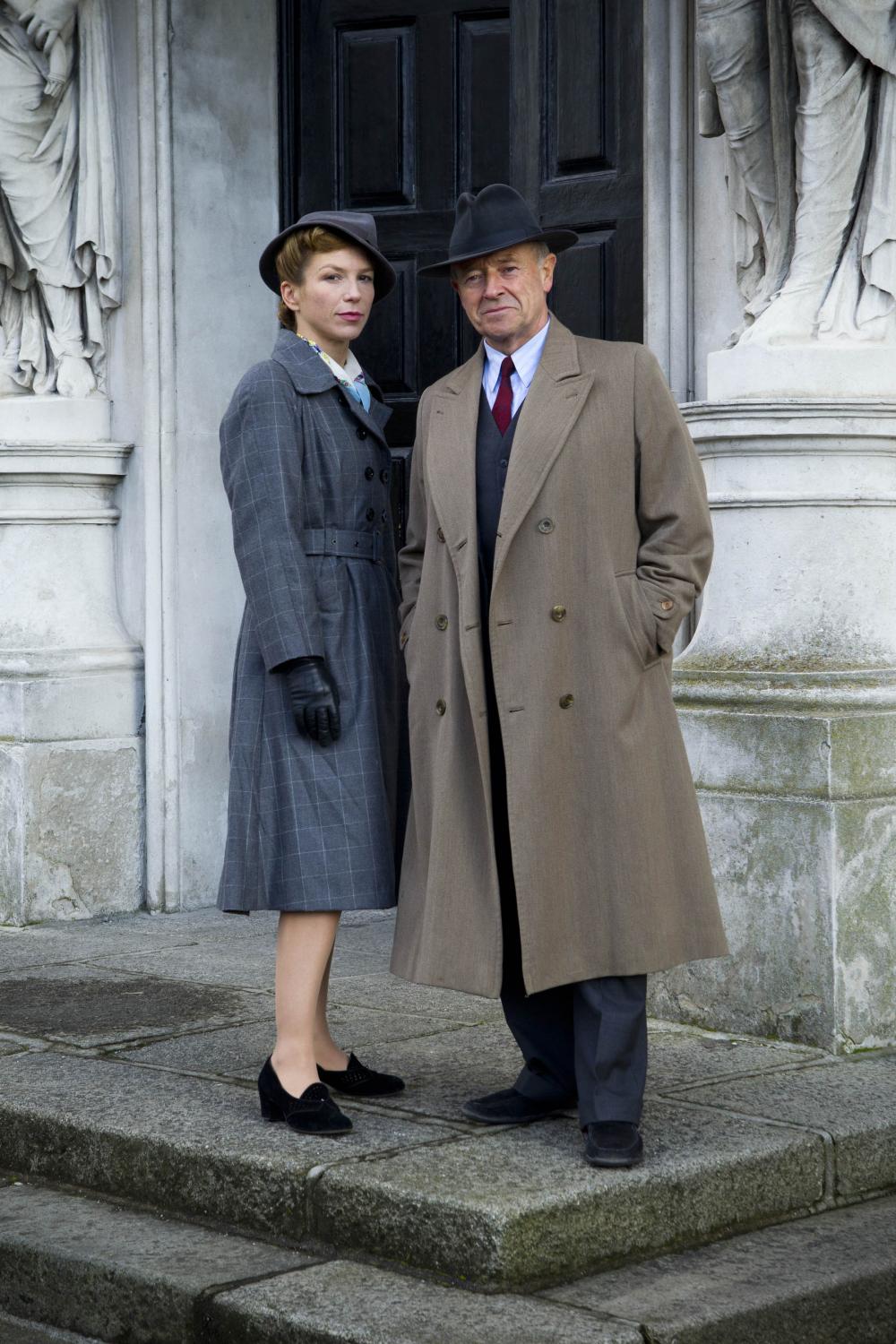Honeysuckle Weeks talks about the return of Foyle's War

The latest updates, reviews and unmissable series to watch and more!
You are now subscribed
Your newsletter sign-up was successful
Want to add more newsletters?

ONCE A WEEK
What to Watch
Get all the latest TV news and movie reviews, streaming recommendations and exclusive interviews sent directly to your inbox each week in a newsletter put together by our experts just for you.

ONCE A WEEK
What to Watch Soapbox
Sign up to our new soap newsletter to get all the latest news, spoilers and gossip from the biggest US soaps sent straight to your inbox… so you never miss a moment of the drama!
TV Times sits down with Foyle’s War star, Honeysuckle Weeks, the show’s creator Anthony Horowitz and guest star, John Mahoney, to talk about the return of the drama.
When the series returns we find out that your character, Sam Stewart, is pregnant, but she decides to keep it a secret from Foyle. Why is that?
Honeysuckle: “In those days, if you had a child, it would be a very unusual woman who continued to work and I don’t think Sam would want to go against social convention to that extent. Sam doesn’t tell Foyle she’s pregnant because she doesn’t want to stop working for him. She revels in the work she does with him and indeed there’s a scene in this series where he allows her to interrogate a woman with questionable morals for him.”
In the first episode, Sam gets to go undercover to try to bring down an American oil baron suspected of murder. That’s quite a big step up for her, isn’t it?
Honeysuckle: “Sam has always been very keen to get her teeth into some sleuthing of her own and she’s delighted to be going undercover. Sam’s integral to finding out why the oil baron is a wrong-un and she puts herself in a position that’s a little bit foolhardy, but that’s Sam all over.”
What does Sam’s husband, Adam (Daniel Weyman), think of all this, knowing that she is carrying his baby?
Anthony: “Like many women in the 1940’s, Sam has found her independence, her feminist side if you like, and Adam is saying, ‘You’re going to be a mum, so you’ve got to stay at home.’ He’s failing to understand what’s going on in Sam’s mind.”
The latest updates, reviews and unmissable series to watch and more!
The first episode also touches on, perhaps, a less well known chapter of post-war history, the Nuremberg Trials. Tell us about that…
Anthony: “They were known as the IG Farben trials (IG Farben was Germany’s biggest chemical company), which was an attempt to bring to justice the businessmen who’d supported Hitler before and during the war. I also researched Monowitz which was an astonishing concentration camp which was built by the industrialists, not the Nazis, to house people in absolutely appalling conditions. Originally, prisoners used to march from Auschwitz to work at the factories there, but this wasted time and lives, so they built a concentration camp to hold them. The industrialists paid the Nazis something like two Deutschmarks a day for children as young as twelve to be worked to death at their factories. I have a burning desire to tell these stories that people no longer know about anymore.”
John, living in America, did you know of the programme beforehand?
John: “I’m a huge fan of the show and I’ve seen every episode. My friends in the states said to me a few years ago, ‘You should watch Foyle’s War, we think you’ll like it because it’s your era and your country (John was born in Blackpool in 1940).’ So I watched it and immediately fell in love with it.”
You were a young child in England during the war, do you have any memories of it?
John: “I remember the air-raid shelters and playing in all the bombed out buildings. I don’t remember the bombs falling but I do remember the aftermath of the war, like taking my little ration coupon to the Saturday matinee to get my two ounces of toffee.”
Do you miss anything about living in England?
John: “To tell you the truth, about six days ago when I was in Chicago, I made myself five rounds of beans on toast which my American friends think is insane! There’s a store near where I live which sells English stuff, so I go there to buy a box of Quality Street or a Yorkie bar. I have a sweet tooth, as you can tell, and I totally miss all of that food!”
You left England when you were 19, after your sister had already moved stateside. What was it like when you first decided to head across the pond?
John: “I couldn’t believe when I saw my sister driving a car – I don’t think I’d ever even driven in a car! They also had so much to eat and so much sun and I thought, “Ok, this is where I’m going to live.’ So, I went back to England, finished school, worked for a year at Lewis’s department store selling clothes to save up some money and then my sister sponsored me over to America.”
British audiences will know you from your role in Frasier but this is your first time in a British programme. How have you found it?
John: “I’ve never been in something I’ve been a fan of before. The director said to me this morning, ‘Good work John,’ and I thought, ‘That’s great, the director of Foyle’s War is telling me I’m doing good work!’”
Foyle's War, ITV, Sunday 4 January, 8.00pm

